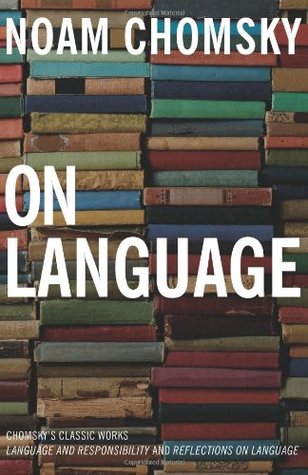 American linguist, cognitive scientist, philosopher, political commentator and anti-war activist Noam Chomsky is known to be the “father of modern linguistics”. Born in Philadelphia, Pennsylvania on the 7th December 1928, he is one of the greatest minds of the twentieth century. Chomsky has been a professor at the Massachusetts Institute of Technology since 1955, and he is the author of several controversial theories on human linguistic capacity.
American linguist, cognitive scientist, philosopher, political commentator and anti-war activist Noam Chomsky is known to be the “father of modern linguistics”. Born in Philadelphia, Pennsylvania on the 7th December 1928, he is one of the greatest minds of the twentieth century. Chomsky has been a professor at the Massachusetts Institute of Technology since 1955, and he is the author of several controversial theories on human linguistic capacity.
Chomsky has an extensive list of publications both in his main fields of work and on U.S. foreign policies. His most notorious contribution in the field of linguistics is the influential “transformative-generative grammar”, which describes the syntactical processes common to all human languages mathematically (Smith,1999, quoted from NewFoundations, 2011). His other theories used as fundamental teachings in several linguistic courses and language sciences are the “theory of Universal Grammar”, also known as the theory of language development, and the “Innate Language” theory. According to this first theory, the human brain is equipped with a limited set of rules of language organisation, and an inference is that all languages have a common structural basis. These rules are also referred to as universal grammar. Very simply put, it is the key to understand how speakers come to know the restrictions of their own language and to be able to identify them. The second theory concerns the language ability of human beings. Even though language rules are influenced by the learning processes and experiences, the capacity for language already exists without the influence of the world around us. Chomsky believes that since language is so complex and unlimited, learning from the environment cannot account for language acquisition on its own. He defends that the human brain is born with a limited set of rules that determine how language functions. So, the foundation of language is already present before any other influence.
 Additionally, he proposed the existence of a so-called “language acquisition device” (LAD) which, according to Chomsky, every child possesses. It allows the encoding of the main principles of a language and the primary grammatical structures in the brain, making the learning of new vocabulary the missing piece for the construction of phrases.
Additionally, he proposed the existence of a so-called “language acquisition device” (LAD) which, according to Chomsky, every child possesses. It allows the encoding of the main principles of a language and the primary grammatical structures in the brain, making the learning of new vocabulary the missing piece for the construction of phrases.
This Sunday marks the 86th birthday of this groundbreaking linguist and one of the most controversial activists and intellectuals of these years, too. If you mention Noam Chomsky, the name is associated with politics and with harsh, punctual criticism to media and governments. This parallel career began in the 60s, when he strongly criticised the American intervention in Vietnam. The prestigious New York Review of Books hosted a famous piece titled “The Responsibility of Intellectuals”, that later became part of his first book about American politics, and that was followed by many other, intense and frequent publications on the same topic. If we browse his biography, we find a fierce analyst, distant from capitalism and traditional socialism, who often debates the right of freedom of speech. His recent participation in a linguistics conference in the Strip of Gaza has provoked many controversial reactions, and combines in the best way his political views together with his devotion to linguistics.
Chomsky widely uses language as a proper and powerful tool. An entire life devoted to words, grammar, language: not only to discover how syntax works, but also to use them as an instrument of intellectual change.
by Andreia Nuno
Graduate from the New University (Portugal), Degree in Modern Languages, Literature and Cultures, English and Portuguese Studies (PT, EN), Master in Learning and Communication in Multilingual and Multicultural Contexts (EN, FR)
Terminology trainee at the Terminology Coordination of the European Parliament
and
Matteo Poles
Social Media Specialist
Communication Trainee at TermCoord
